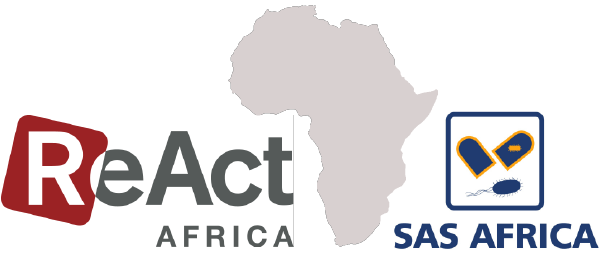Ngoni’s interest in Antimicrobial resistance started in 2020 when he joined the Zimbabwe Pharmaceutical Students Association (ZPSA) education office subcommittee. At that time he did not have a clear picture of what amr was, why he should be involved in it and why it was important for him to know and share the knowledge to everyone else. He attended an IPSF Pharmacy Education office virtual meeting on introduction to Antimicrobial resistance and a great light shone on him. After becoming fascinated with AMR, he began joining groups that are working to combat the amr on social media sites like Facebook and Twitter. Ngoni also began reading books on AMR published by reputable publishers, like the Lancet Gram study, Carb-X, ReAct, and many more, just to name a few.
During the year 2021/22 when he was the Pharmacy education officer for ZPSA Ngoni facilitated various activities on antimicrobial resistance. These include 3 webinars on education and awareness where he invited various speakers in Africa the likes of Dr. Jaguga, Mr Kujinga Director, Estelle Mbadiwe from Ducit Blue foundation to mention a few. Ngoni also conducted an online antimicrobial resistance campaign during the world antimicrobial awareness week ( 18TH to 24TH November 2021). During this week he and his team hosted an article contests where 25 students participated. They disseminated amr information through online fliers and sharing of short AMR skits. All this work was done with the help of my Pharmacy education office sub-committee. He attended the national antimicrobial resistance policy dialogue which was held at Meikles hotel in Harare hostel by the Director of PATAM Mr Kujinga where he also invited students from the university of Zimbabwe and Harare Institute of Technology who had the similar zeal and passion to learn and to contribute in the fight against amr. At this dialogue he learnt current affairs of amr statistics in Zimbabwe, one health approach reports from Food and Agriculture Organization (FAO), Ministry of Health and Child Care (MOHCC) and the implications of amr in STI’S. Ngoni also contributed in the preparation of the ICARS concept note at the Bronte hotel in Harare. At this workshop he learnt a lot with respect to concept note preparations, professional frameworks to use when developing a project budget and how to carry out a successful discussion during a workshop. All these skills had helped him to create good concept notes, share valid information on antimicrobial resistance and stewardship his fellow colleagues, approach AMR from various perspective not just to humans and to understand the importance of enforcing health policies as a way to mitigate amr.
At this time Ngoni had already joined SAS-Africa and started the organization in his home country with a team constituting 15 students. He got an opportunity to share a presentation on antimicrobial stewardship targeting behavioral change on amr to an annual conference for pharmacy students hosted by Zimbabwe Pharmaceutical Students Association (ZPSA) at ZIPAM hotel in Norton, Zimbabwe. He collaborated with SAS-Africa and hosted a webinar on big data analytics in drug research, innovation and development where we invited Dr. Fredrick Nindo as one of the panelists. Not only that students learned from antimicrobial resistance but data analtsis too and how to link the two. He started working on an article which talks on the need to educate children, introducing it in primary and secondary schools curricular and the positive outcomes witnessed in previous campaigns like HIV/AIDS. It was released in the AMR blog series in the SAS-Africa writers with the title education maybe the key to an antimicrobial resistant free generation
With respect to the virtual meetings Ngoni hosted on AMR and AMS where he faced some challenges on getting presenters, it could take almost three to four weeks before getting committed panelists. Sometimes they had to compromise the venue, time and date to fit the panelists’ schedules. Even though they could have a poor attendance of the target audience. Poor attendance was due to lack of resources amongst attendees like internet connection.
They have a bunch of project proposals but we are currently facing sponsorship problems. Currently Ngoni and his team have a project on education and awareness as Students Against Superbugs Africa but sponsorship is a chasm. They also have a project on AMR education and awareness in collaboration with the Zimbabwe Medical Students Association but sponsorship is also an issue.
Ngoni understood that everyone should be accountable in this fight and we should educate people on the issue of antimicrobial resistance. This is because most people are not aware of it and even those in the medical field need be reminded of it. He learned on how to prepare standard concept notes with an expected framework from sponsors. Ngoni learned to be industrious and consider the fact of team in whichever activity he would like to carry because as an individual it’s highly unlikely to fight a problem effectively and mostly to completion. He also learnt that students are also effective channels of communication and various stakeholders fighting amr should include them in their activities in order to bring about change.
He comprehended the need to have more students engaged in the data analytics and surveillance field in Africa, since the continent has many low and middle income countries with poor health surveillance systems. He confirmed that antimicrobial resistance fight is not for those in the medical field only but even to those in the non-medical field. He also understood that they another major way to include various disciplines in the amr fight is to use the one health approach. Ngoni learnt that antimicrobial resistance need to be prevented more than curing it because there are so much costs in troubleshooting its implications. This is because currently we are facing superbugs which have outweighed most of the common and accessible medicines use to treat most of the common infections. This is a challenge to almost every person. We can rely to stewardship practices and other infection treatment methods like the phage treatment. It is now our duty as amr guardians to then engage students and other researchers in fields like genomics as a way to get rid of phage drugs manufacturing and research costs.
Overally, I acquired some stewardship skills in as far as antimicrobial use is concerned. Currently I am under a 6 weeks pharmacy attachment and I am able to dispense antibiotics rationally with respect to medicines control authority policies. This course has strengthened my patient counseling competency especially to those who enter the pharmacy demanding for antibiotics. In as much as I learnt about antibiotics at school, this course helped me to understand the practical basis of them.
I have been having punctuality challenges but time management is a pre-requisite skill of a healthcare worker. I learnt to keep time from the virtual meetings we had during the training programs. We could cover various activities in 2 hours having people from different countries around Africa. I also learnt to work with other people well, we could engage in various activities with students from various countries across Africa. I also got some basic article writing skills.
I am seeking funding to sponsor our amr activities which we are carrying out as SAS-Africa Zimbabwe chapter. We have two project proposals on education and awareness, one as SAS-Africa team only and the other one a collaboration with the Zimbabwe Medical Students Association. We are also committed to carry out amr training courses which we would like to invite healthcare professionals from the one health approach. These require funding as well to pay the tutors and to supply some learning materials. We are also aiming to initiate amr campaigns in the form of radio talks every now and then, quizzes, debates and drama competitions. Also these campaigns can be facilitated by distributing IEC materials which would be contain translated amr information into our vernacular language and also simplified to enable everyone both from the medical field and non-medical field to be able to read and understand.
AMRLEP course is the best shot for beginners and those who are enthusiastic to learn and be engaged in amr activities. It’s an opportunity to learn global health aspects from a one health approach. It’s a course that also help you to understand about amr even if you are not coming from a medical field. It is also a place where you can learn leadership and to practice accountability in health issues. AMRLEP is essential when you want to learn about health politics (policies and regulations) with respect to the use of antimicrobials.
Antimicrobial resistance fight is essential to each and every one across the globe. As a young generation let us become stewards in the sense that we become responsible for antimicrobial use wherever we are. Let us spread the message by holding campaigns, educating our peers, write blogs, articles and even journals. Let us do some research projects to try and innovate new strategies to mitigate antibiotic resistance. We can also educate our community that antibiotics are not only the treatment to microbial infections. As the saying “charity begins at home, another effective way of fighting amr is to first inform our immediate guardians and parents. It is also wiser to include amr topics in the launch, watch amr talks on the television so that discussions at home can also be around global health concerns.
At school it’s easier to fight amr through forming clubs and societies that engage students through giving them opportunities to learn and share their ideas on the matter. Initiation of education and awareness campaigns at school is essential as well. It can be done every preferred day where students are given learning materials containing amr information. Leaflets, magazines, fliers and other IEC materials can be used. It is also a good idea to include your tutors, patrons and conducting collaborations with other clubs in these various activities to gain support.
Gallery while engaging in AMR

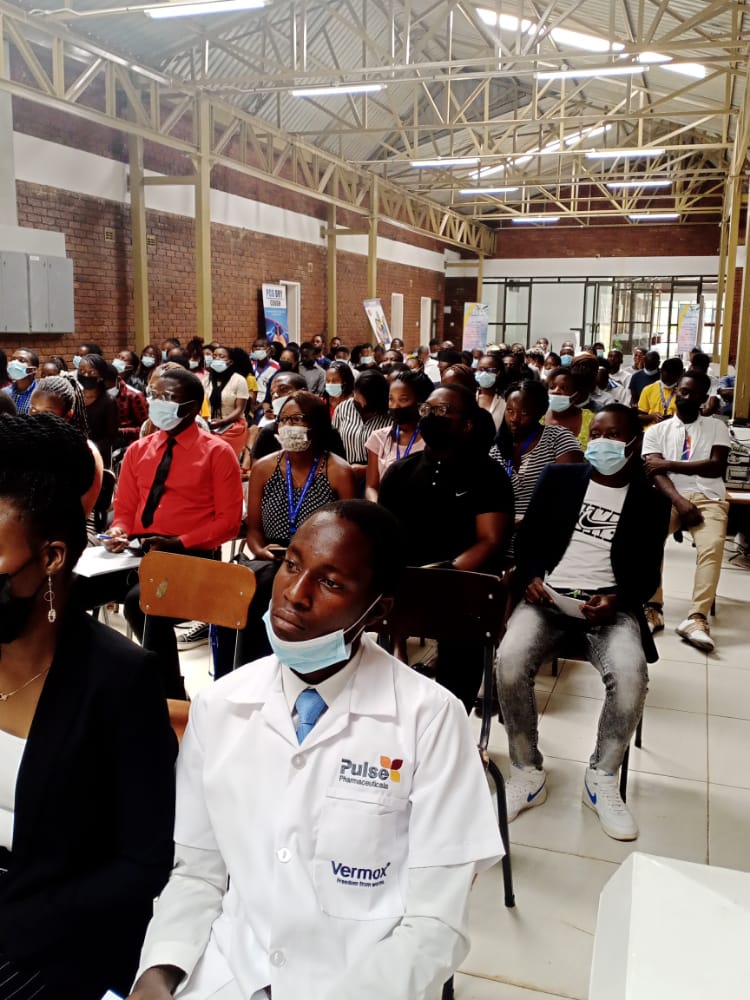

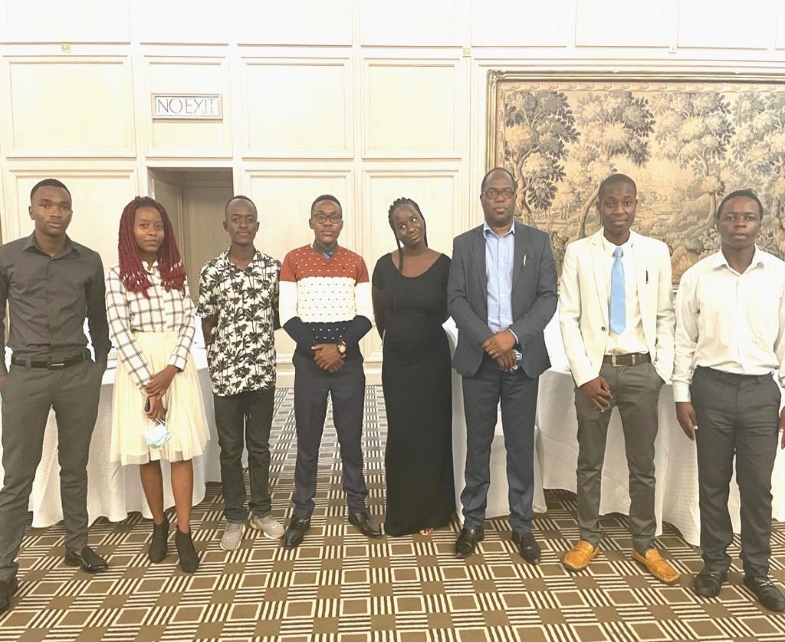
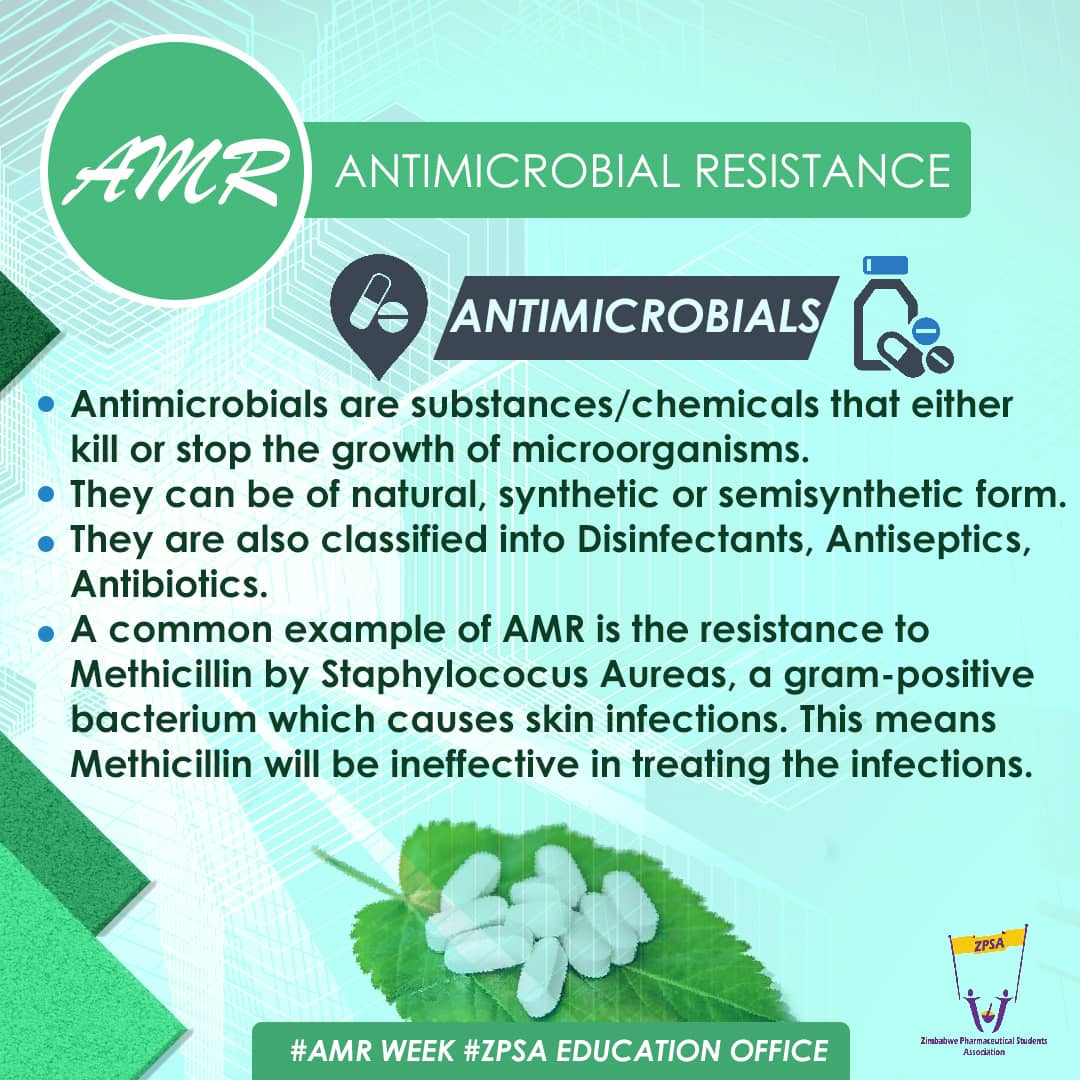


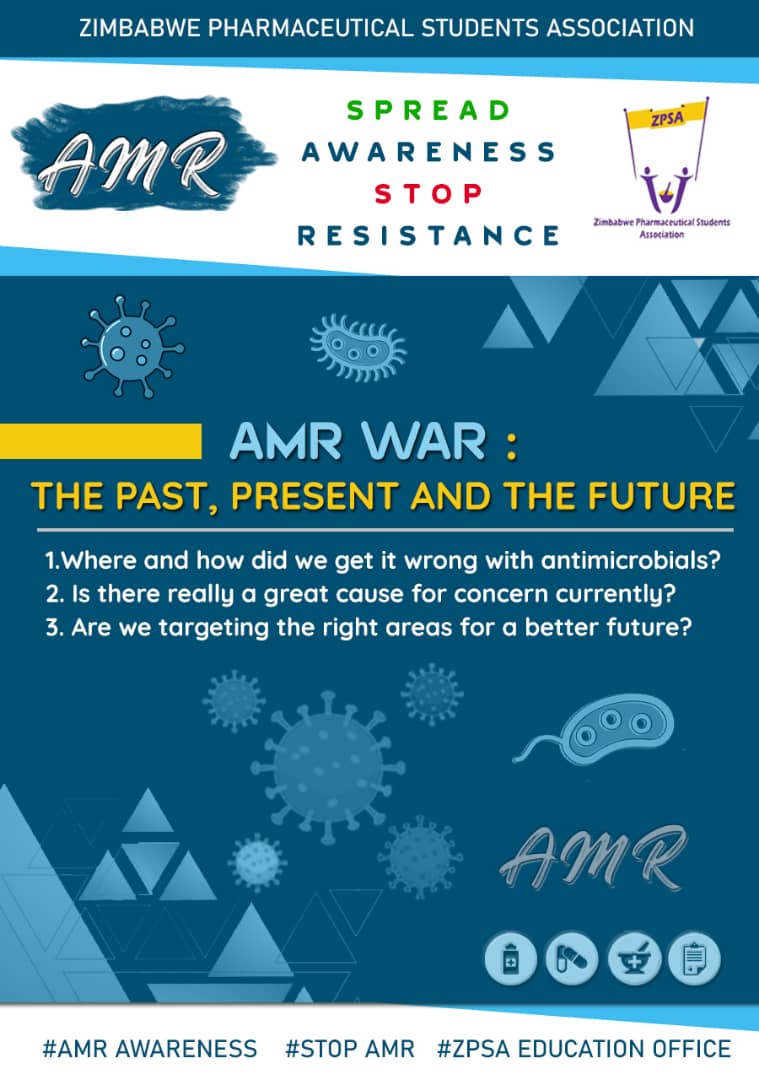

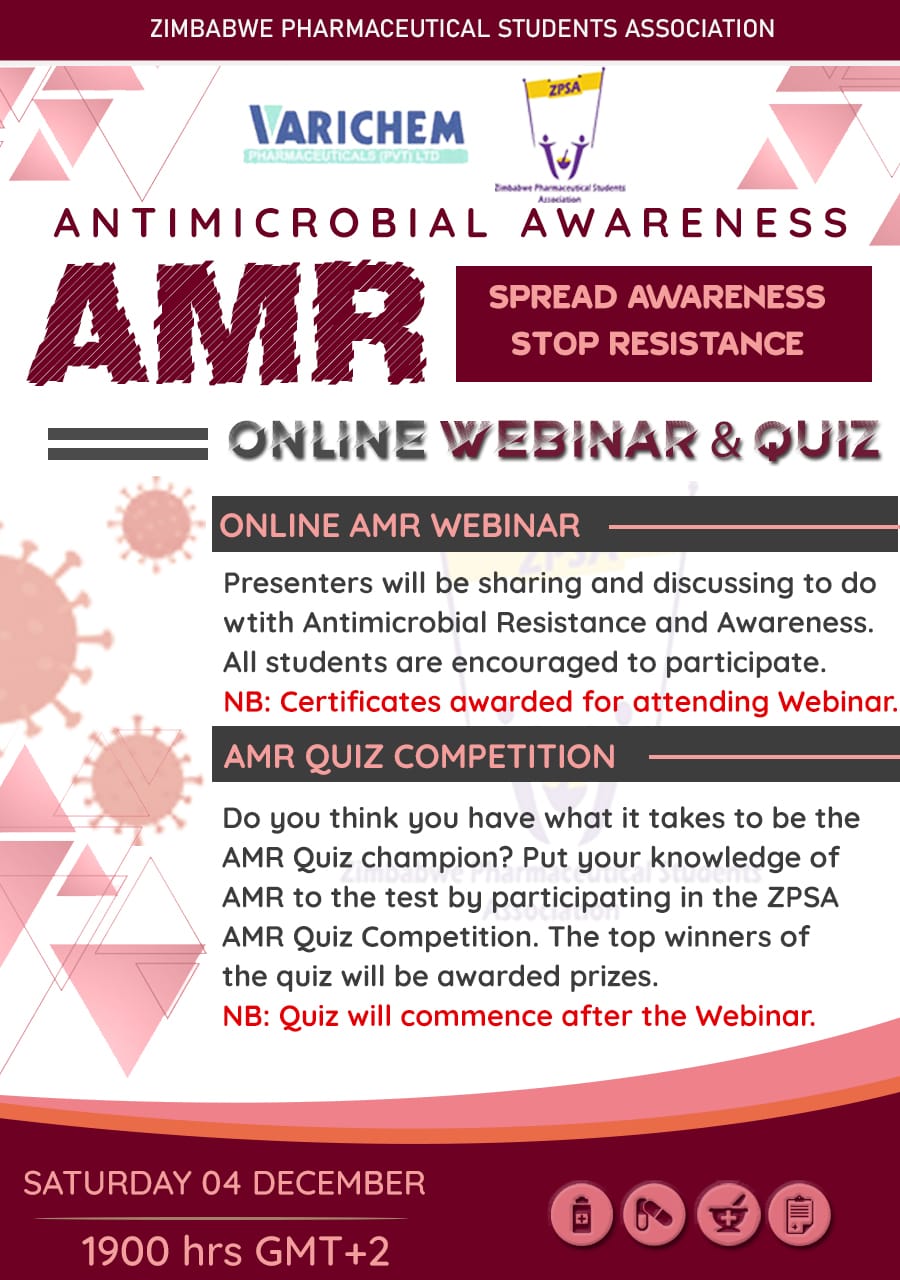

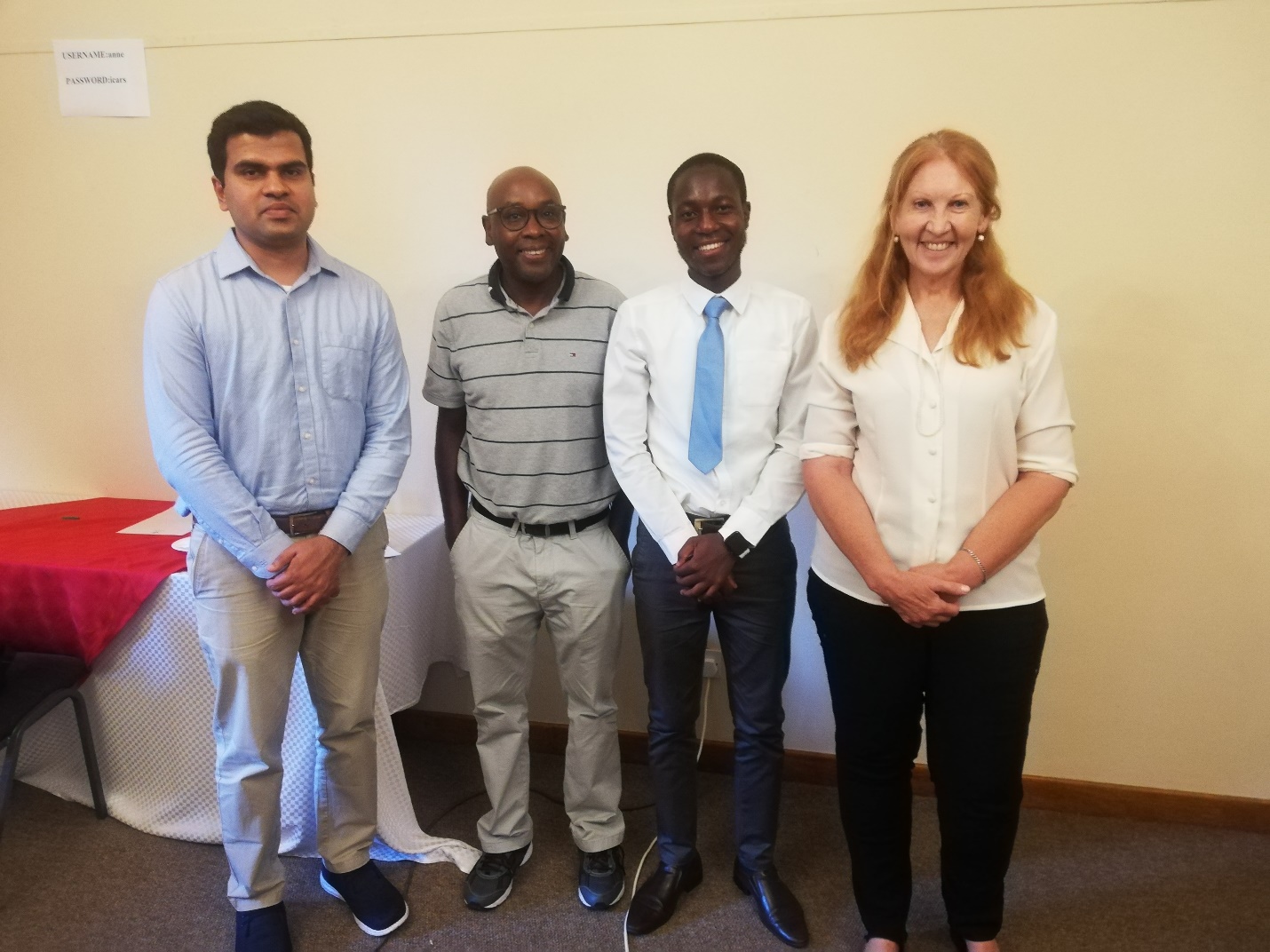
LINKS SUPPORTING AMR ACTIVITIES
- LinkedIn handle: Ngoni Veddie Muzondo
- Facebook handle: Ngonidzashe Trymore
- Twitter handle: Ngonidzashe@Powermaster_tm
- Education maybe the key to an antimicrobial resistant free generation article link: https://www.studentsagainstsuperbugs.org/amr-writers-participants-articles/education-may-be-the-key-to-an-antimicrobial-resistantfree-generation/
